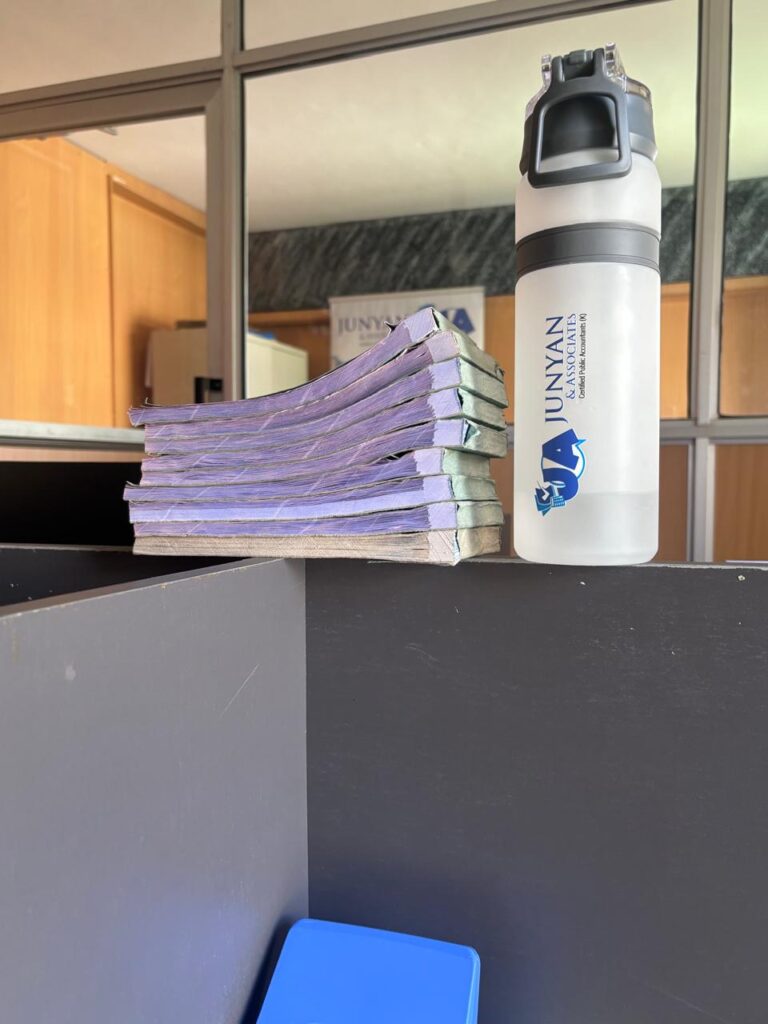accountants in hotels: The hospitality industry is highly competitive and dynamic, with hotels facing daily challenges in balancing guest satisfaction, operational efficiency, and financial stability. Behind the scenes, accountants play a crucial role in ensuring hotels remain profitable, compliant, and well-prepared for growth.
The hospitality industry in Kenya is a cornerstone of the economy, significantly boosted by tourism. With thousands of local and international visitors flocking to Kenya’s world-renowned hotels, lodges, and resorts, financial management in this sector is more critical than ever. Hotels must adhere to strict tax and financial regulations, and accountants play a pivotal role in ensuring compliance, optimizing financial performance, and handling mandatory audits—especially the Tourism Levy Audits.
In this article, we explore why professional accountants are indispensable for Kenyan hotels, how they assist in regulatory compliance, and the importance of the Tourism Levy Audit in the industry.
Why Hotels in Kenya Need Professional Accountants. (accountants in hotels)

Operating a hotel in Kenya involves navigating multiple tax obligations, financial laws, and compliance requirements from various authorities, including:
- Kenya Revenue Authority (KRA) – for tax obligations
- Tourism Fund – for tourism levies
- County Governments – for licensing and operational compliance
Failing to meet these financial obligations can result in heavy penalties, legal issues, and loss of operating licenses. Below are key financial areas where accountants are crucial for hotels in Kenya:
1. Tax Compliance & Financial Reporting
Kenyan hotels must comply with a variety of taxes, including:
- Value Added Tax (VAT) – applied to hotel services and food sales
- Corporate Income Tax – levied on the hotel’s annual profits
- Pay As You Earn (PAYE) – deducted from employees’ salaries
- National Social Security Fund (NSSF) Contributions – required for employee welfare
A professional accountants in hotels ensures that these taxes are accurately calculated, recorded, and remitted on time to avoid penalties and legal issues. They also prepare financial reports that reflect the hotel’s performance, which is critical for investors, auditors, and government regulators.
2. Budgeting and Cost Control
The hospitality industry is highly cost-intensive, with expenses spanning across:
- Employee salaries and wages
- Food and beverage procurement
- Utilities (electricity, water, and internet)
- Marketing and promotions
- Property maintenance and renovations
Accountants in hotels help manage costs effectively by tracking expenditures, implementing budget strategies, and forecasting financial trends to enhance profitability.
3. Expense Control
Hotels often struggle with high operational costs such as utilities, staff wages, and inventory. Accountants in hotels monitor expenses, implement cost-saving measures, and highlight areas of wastage without compromising guest experience.
4. Tax Compliance and Reporting
Hotels are subject to numerous taxes, including corporate tax, VAT, and payroll tax. Accountants in hotels ensure compliance with local tax laws, prepare accurate returns, and prevent costly penalties. They also advise on tax incentives that hotels can leverage to reduce liabilities.
5. Payroll and Human Resource Support
With hotels employing large numbers of staff across departments, managing payroll can be complex. Accountants in hotels streamline payroll systems, ensure compliance with labor laws, and provide accurate employee compensation records.
6. Audit and Risk Management
Accountants in hotels conduct internal audits to ensure financial integrity and safeguard assets. They also help identify risks—such as fraud, theft, or mismanagement—and implement internal controls to protect hotel finances.
7. Supporting Strategic Growth
Whether a hotel is expanding, renovating, or diversifying services, accountants provide the financial feasibility analysis needed for sound decision-making. Their role ensures investments are sustainable and aligned with long-term goals.
8. Enhancing Stakeholder Confidence
Transparent financial reports prepared by accountants build trust with investors, lenders, and business partners. This credibility is vital for hotels seeking funding or partnerships.
Financial Requirements for Hotels in Kenya.
Apart from the Tourism Levy, hotels must also comply with other financial obligations, including:
1. Business Permits from County Governments
Each hotel must obtain business permits from the county government where they operate. These permits vary depending on the size and location of the establishment.
2. Liquor Licenses
Hotels that serve alcoholic beverages must secure a liquor license, which is regulated by county governments and the National Authority for the Campaign against Alcohol and Drug Abuse (NACADA).
3. Food Hygiene Certificates
To maintain safety standards, hotels must acquire food hygiene certificates to verify that their kitchens and food handling practices comply with public health regulations.
4. Bed Occupancy Levies
Some counties, such as Mombasa and Nakuru, impose bed occupancy levies, which hotels must factor into their financial planning. Accountants ensure that these levies are properly calculated and paid.
Why Hiring an Accounting Firm is the Smartest Move for Your Hotel’s Success
Running a hotel is no small task. Between managing bookings, ensuring guest satisfaction, supervising staff, and maintaining facilities, hoteliers already have their hands full. One area that often gets overlooked—or handled inefficiently—is accounting. Yet, financial management is the backbone of every successful hospitality business. That’s why hiring a professional accounting firm is not just a wise choice but a strategic investment.
Expertise in Hotel Financial Management.
Hotels generate revenue from multiple streams—rooms, restaurants, events, bars, and recreational facilities. An accounting firm brings specialized expertise to manage these complex accounts, ensuring accurate reporting and financial transparency.
Accurate and Timely Bookkeeping.

Hotel transactions happen daily and in large volumes. Accounting firms provide structured bookkeeping systems that keep track of every shilling spent or earned. This ensures your records are up-to-date, reliable, and ready for decision-making.
Tax Compliance and Savings.

Kenya’s tax landscape is ever-changing, with VAT, corporate tax, payroll tax, NSSF, NHIF, and now SHA contributions. An accounting firm ensures full compliance, timely filing, and helps your hotel claim eligible deductions and incentives—saving money and avoiding penalties.
Payroll Management Made Easy.
Hotels often employ a large workforce across different departments. Managing salaries, statutory deductions, and employee benefits can be complex. An accounting firm handles payroll processing with accuracy, ensuring compliance with labor and tax laws.
Cost Control and Profit Maximization.
Hotels face high operating costs—utilities, food supplies, wages, and maintenance. Accounting firms analyze expenses, identify wastage, and recommend cost-saving strategies. This ensures profitability without compromising guest satisfaction.
Strategic Advisory for Growth.
Thinking of expanding your hotel, adding new services, or renovating facilities? Accounting firms provide financial feasibility studies, cash flow projections, and investment advice to support strategic decisions.
Peace of Mind for Hotel Owners
When an accounting firm takes care of compliance, audits, and financial reporting, hotel owners and managers can focus on what matters most—delivering exceptional guest experiences.

Why Partner with Junyan & Associates?
At Junyan & Associates, we understand the unique financial challenges that hotels face in today’s market. Our team of professional accountants goes beyond basic bookkeeping to provide strategic financial guidance, tax compliance support, and performance insights tailored to the hospitality sector.
Whether you run a boutique hotel or a large resort, we help you:
- Maximize revenue and minimize costs.
- Stay compliant with Kenya’s ever-changing tax laws.
- Build investor confidence with transparent reporting.
- Make informed decisions for expansion and long-term success.
With us as your accounting partner, you can focus on creating unforgettable guest experiences while we take care of your financial growth.
📞 Contact Junyan & Associates today and let’s help your hotel thrive.
https://junyanandassociates.com/tourism-levy/
Frequently Asked Questions (FAQs)
1. How often do hotels in Kenya need to submit their Tourism Levy payments?
Hotels must remit the tourism levy monthly to the Tourism Fund based on their total turnover. Late payments can attract penalties.
2. What penalties do hotels face for non-compliance with tax regulations?
Hotels that fail to meet tax obligations risk fines, interest charges, legal action, and potential revocation of business licenses.
3. Can small hotels and lodges benefit from hiring an accountant?
Yes, even small hotels and lodges benefit from professional accountants by ensuring compliance, cost management, and financial planning.
4. Are accountants responsible for handling hotel payroll in Kenya?
Yes, accountants manage payroll processing, PAYE deductions, NSSF contributions, and statutory deductions for hotel employees.
5. How can hotels ensure they pass Tourism Levy Audits?
To pass audits, hotels must keep accurate records, submit timely payments, and engage professional accountants to handle their financial reporting.


